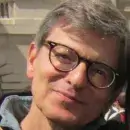
Karol Berger
Karol Berger’s areas of research have been: vocal polyphony of the Renaissance; history of music aesthetics and theory; and Austro-German art music in the eighteenth and nineteenth centuries. His early work, culminating in the 1981 study, “The Hand and the Art of Memory” (Musica Disciplina, 35, 87-120) and his second book, Musica Ficta: Theories of Accidental Inflections in Vocal Polyphony from Marchetto da Padova to Gioseffo Zarlino (Cambridge: Cambridge University Press, 1987), was guided by the ambition to reconstruct on the basis of music-theoretical texts of the Middle Ages and Renaissance the mental categories that allowed early European musicians to organize and think about the whole universe of tones they used and, consequently, informed the way they heard and understood their music. The second area of Berger’s work is best represented by his next book, A Theory of Art (New York: Oxford University Press, 2000). Drawing inspiration from Hegel and Heidegger, on the one hand, and from American pragmatists, on the other, this is fundamentally an attempt to think through the question of what useful purposes, if any, can art still play today. The book differs from other recent formulations of the aesthetic theory in that the range of questions it considers is not limited to those traditionally asked by writers on aesthetics, but includes also issues in poetics and hermeneutics. Berger’s most recent work, best represented by the already completed book, Bach's Cycle, Mozart's Arrow: An Essay on the Origins of Musical Modernity (Berkeley and Los Angeles: University of California Press, 2007), forms a project unique in the field of musicology—an attempt to see the main stages in the spiritual development of European educated elites since the early eighteenth century through the prism of the development of art music. A forthcoming book, Beyond Reason: Wagner contra Nietzsche (Berkeley and Los Angeles: University of California Press, 2016), will present the next installment of this project.